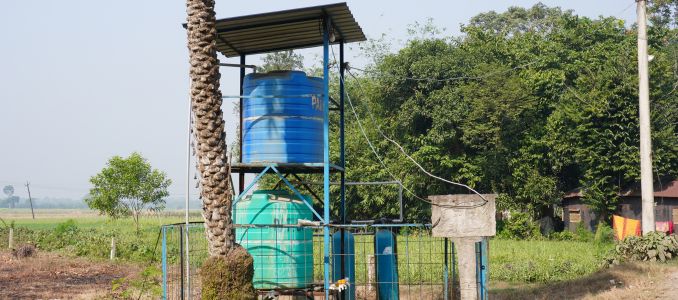
EPA Targets Rural Water Systems with $30.7M for Training and Technical Support
Federal funding will strengthen small and rural water systems through technical assistance, compliance training, and support for private well owners, while also advancing tools like Water ICAT to guide infrastructure investments.
- By Stasia DeMarco
- May 21, 2025
The EPA announced $30.7 million in grant funding to provide training and technical assistance that will improve water quality in small and rural communities across the country. This support helps ensure that every American has access to clean and safe water and advances the goals of Administrator Lee Zeldin’s “Powering the Great American Comeback” initiative.
“Small and rural communities are the backbone of our country, and they face unique challenges when it comes to ensuring clean and safe water,” said EPA Senior Advisor Jessica Kramer. “EPA is committed to assisting small and rural communities with improving water quality, protecting health, bolstering economic opportunities, and protecting water resources. This $30 million in funding for technical assistance will help communities address their unique needs.”
Funding for the training and technical assistance grant will be used for meeting technical, financial, and managerial needs at small public drinking water and wastewater systems to achieve and maintain compliance with the Safe Drinking Water Act and Clean Water Act. It will also assist private well owners with improving water quality, including testing for PFAS contamination. Additionally, these investments can be used to address challenges with onsite wastewater management (e.g., septic systems).
EPA anticipates awarding federal grants to these recipients after legal and administrative requirements are satisfied:
- National Rural Water Association – $9 million to support small systems while enhancing operator licensing and conducting troubleshooting to determine
- Rural Community Assistance Partnership (RCAP) – $9.9 million to strengthen small systems, including by developing lead service line replacement plans and improving cybersecurity. In addition, $1.25 million will help small publicly owned wastewater and on-site/decentralized wastewater systems to improve water quality, and $3.45 million to work with private drinking water well owners to help improve water quality, including testing for PFAS contamination.
- Southwest Environmental Finance Center at the University of New Mexico – $7 million to build small system capabilities, improve operational efficiency, and overall drinking water system performance.
“NRWA is thankful for the long-standing partnership with EPA in providing vital hands-on grassroots training and technical assistance for addressing the significant water challenges faced by the small and rural communities across our nation,” said National Rural Water Association CEO Matt Holmes. “We are honored by the EPA's confidence in our ability to deliver effective training and technical assistance, assist in navigating complex funding landscapes, and support the implementation of reliable infrastructure solutions where they are needed most.”
“We are honored to collaborate with the U.S. Environmental Protection Agency to advance initiatives that support rural and tribal communities nationwide,” said RCAP CEO Olga Morales-Pate. “As a recognized national leader in rural water technical assistance, RCAP is uniquely positioned to deliver tailored support to small utilities and private well owners. We commend the EPA’s continued dedication to enhancing the quality of life in rural communities across America.”
“The EFCN is passionate about and committed to helping small drinking water systems ensure the public is well-served with safe, healthy, and reliable drinking water and we are excited to work with EPA to continue this much-needed effort in all 50 states and territories,” said Heather Himmelberger, Director, Southwest Environmental Finance Center at the University of New Mexico.
Additionally, EPA is re-launching the Water Infrastructure and Capacity Assessment Tool (Water ICAT) following improvements to better serve users. Water ICAT is an interactive map that helps users, such as state and federal partners and technical assistance providers, identify drinking water and wastewater utilities that may benefit from water infrastructure technical assistance. Water ICAT combines water utility information with compliance, demographic/economic, and historical water infrastructure funding data, enabling users to efficiently and effectively screen for, evaluate, and prioritize utilities that may benefit from additional federal, state, or local support.
Learn more about the grant and find additional information about ICAT.
About the Author
Stasia DeMarco is the Content Editor for EPOnlne.